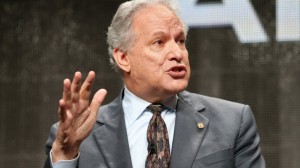Even after recalling more than 19 million vehicles due to potentially faulty Takata airbags, the crisis is likely far from over, warned the nation’s top automotive safety regulator.
Just days after Mazda added 370,000 more vehicles to the list of those recalled, the number is “very likely to grow, perhaps by a lot,” Mark Rosekind, the head of the National Highway Traffic Safety Administration, said during a speech in Detroit.
“The Takata situation is unprecedented in American history,” Rosekind said during the Automotive News World Congress. “The fact that this crisis festered for so long, that some made efforts to obscure its seriousness, should sober everyone in this industry.”
So far, 11 different automakers have become embroiled in the Takata crisis, including Chevrolet, BMW, Toyota and Honda. All told, more than 19 million vehicles have been recalled to date, making it the largest safety issue linked to a single defect in automotive history. Manufacturers are continuing to search their databases, and appear likely to find still more models that used the suspect airbag inflators, Rosekind explained.
(NHTSA planning to make three “history-making” announcements. For more, Click Here.)
There are still plenty of uncertainties surrounding the Takata problem. What is known is that some of the airbag inflators made by the Japanese supplier can ignite with far more force than intended when triggered during a crash. That can send metal and plastic shrapnel flying into the passenger compartment.
So far, nine deaths are known to have been caused by the faulty airbags, with scores of additional injuries. The most recent death was confirmed just last month and involved a teen driver who crashed a car near Pittsburgh last summer.
The exact reason why the airbags are malfunctioning is unclear. There are signs the situation can be worsened when a car is exposed to high humidity and, initially, NHTSA approved limited regional recalls targeting areas like Southern Florida and Puerto Rico. But after other incidents – and fatalities – were reported in dryer regions, the recall was expanded.
(Automakers, U.S. regulators set to announce agreement on improved safety. For more, Click Here.)
Takata initially resisted but eventually buckled under after a series of four Congressional hearings. It signed a consent agreement with NHTSA late last year resulting in $70 million and accepted the appointment of an outsider to monitor its safety efforts. That fine could be substantially increased if Takata doesn’t live up to its agreement.
Last February, a consortium of 10 carmakers came together to try to understand the root cause of the problem. Some now believe it is an inherent issue that occurs when airbags using ammonium nitrate inflators begin to age and break down.
“This is proactive safety,” Rosekind said during his Detroit speech. “It’s a model of how NHTSA hopes to work with industry in the future, and it’s going to protect the lives and safety of millions.”
(To see more about the effort to toughen the standards for crash test ratings, Click Here.)
NHTSA is expected to announce a new consortium on Friday that will bring together 16 automakers who will work with the agency to get new safety technology into production faster than if the industry were to wait for new government mandates. Yet another consortium is getting ready to move forward with plans to make automatic emergency braking technology standard.


Will Takata be fined $20 BILLION for knowingly selling defective airbags? Why isn’t GM being fined $100 BILLION for killing 100+ people with a defective ignition switch ad cover-up?